Circular Solutions: How can eco-innovation deliver sustainable development in Africa?
Date & Time
Thursday 21st October, 10:00am – 12:00pm BST
Location
Microsoft Teams Webinar – Free registration
Event description
A webinar featuring contributors from across the RECIRCULATE/ACTUATE Global Challenges Research Fund projects partnership will present African perspectives on the potential for eco-innovation to deliver sustainable development.
Since 2017, a consortium of universities, research institutes, business and communities have been working together through the RECIRCULATE and ACTUATE projects to co-design and co-develop eco-innovative solutions contributing to a safe circular water economy in sub-Saharan Africa. When it comes to issues such as water use in West Africa, it’s especially important to talk to local people who have first-hand experience of water problems and ask them to get involved in framing the questions the researchers need to answer.
In an era where global concerns about sustainability issues are at a peak as shown by the current agenda of the international community, international universities have a crucial role to play. The UN Sustainable Development Goals (SDGs) provide a platform for country level commitments towards transforming our world and different national governments have been aligning and trying to comply with these. Internationally however, the success of a sustainability framework has been dependent on cohesion and a strong working relationship between the public and the private sector though in many parts of the world; this remains a challenge. With the world uniting to tackle the crises of climate change, it makes sense to pause and think that the role of RECIRCULATE and ACTUATE Projects are in these conversations.
As Africa witnesses an increase in private sector investment, technological development and industrialization across a wide range of sectors and with the recent and ongoing pressures from the global pandemic, there is need for a national policy level consideration of sustainable models that promotes eco-innovation for a green economy and solution-driven research is at the heart of this, addressing the UN SDGs.
Eco-innovation has the capacity to deliver the tools needed for Green Growth and sustainable development. Those tools will be commercially successful products, services and technologies that reduce the impacts of human activities on the environment, achieve more efficient/responsible uses of natural resources and enhance societal, economic, and technological resilience to environmental pressures. These are key objectives of CPOP 26 this year. However, it must be clear that eco-innovation cannot be achieved without quantitative and qualitative research, resource mobilization and strategic partnerships. Focus must be given to sustainable solution-oriented research models that bridge the gaps between academia and industry. For universities to fulfil their role in achieving or supporting the UN SDGs, there must be a high-level management buy-in and strategy to integrate sustainable principles in every aspect of its operations. Whether it be in research, training/teaching and learning of students, engagement with communities, infrastructural development or administration.
Experiences at different sustainable development projects, including the Lancaster University 7 million pound Circular Water Economy RECIRCULATE project and the 700, 000 pounds ACTUATE waste to energy demonstration project in West Africa, show that universities are key drivers of effective eco-innovation for two reasons. First, they are ‘anchors’ in co-designing co-developing and co-delivering research-driven eco-innovation partnerships with the private sector, which ultimately deliver “environmental solutions”. Second, they play the key role in delivering the high level (graduate/post-graduate) skills that are essential to drive forward eco-innovative policies, products and services. However, how can institutions in Africa focus on eco-innovation strategies to drive sustainable development in Africa?RECIRCULATE/ACTUATE researchers will outline how they have worked with research users including members of low income communities, farmers, businesses and entrepreneurs to develop eco-innovative solutions to a range of water-related challenges. These innovations will enable communities to be more resilient to the effects of future climate change.
Programme
10:00 – 10:10Welcome & Introduction of ParticipantsDr Akan Odon10:10 – 10:20Introduction to RECIRCULATE, ACTUATE and COP26 Activities Prof. Kirk Semple10:20 – 10:40Eco-innovation for sustainable development in Africa – a case study of CSIR–IIRDr Francis Boateng Agyenim10:40 – 10:50Eco-Innovation for sustainable development in Africa – a case study of CSIR-CRIDr Patricia Oteng-Darko10:50 – 11:00Stakeholders Interaction11:00 – 11:20Eco-innovation for sustainable development in Africa – a case study of the CGE Nigeria, University of BeninProf. Lawrence Ezemonye 11:20 – 11:40Eco-innovation for sustainable development in Africa – a case study of Lancaster University Ghana Dr Cynthia Forson 11:40 – 11:55Stakeholders Interactions11:55 – 12:00Wrap up & closing remarksDr Akan Odon
Speakers
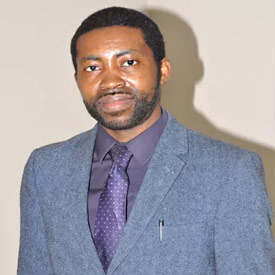
Dr Akan Odon
Akan is an Africa Strategy Adviser for Lancaster University and a moderator of our webinars.
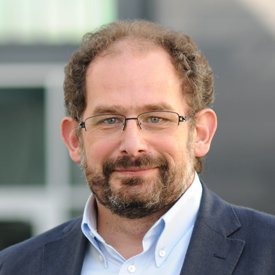
Prof. Kirk Semple
Kirk is a Professor of Environmental Microbiology at Lancaster Environment Centre and Director for RECIRCULATE & ACTUATE.

Francis Boateng Agyenim
Francis is the Director of Council for Scientific and Industrial Research (CSIR) – Institute of Industrial Research (IIR) and a co-leader of our “Water for Health & Sanitation” work package.
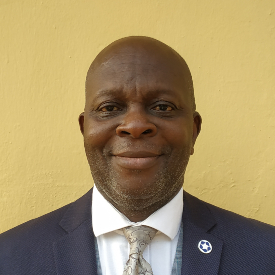
Prof. Lawrence Ezemonye
Lawrence is the Chair of Centre for Global-Eco Innovation at the University of Benin and a co-leader of our “Water for Energy Production” work package.
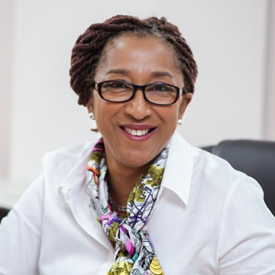
Dr Cynthia Forson
Cynthia is a Deputy Provost at Lancaster University Ghana and a co-leader of our “Entrepreneurship and Innovation” work package.
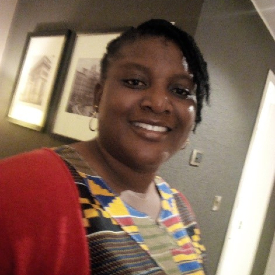
Dr Patricia Oteng-Darko
Patricia is a Research Scientist at CSIR-Crops Research Institute, Ghana.
